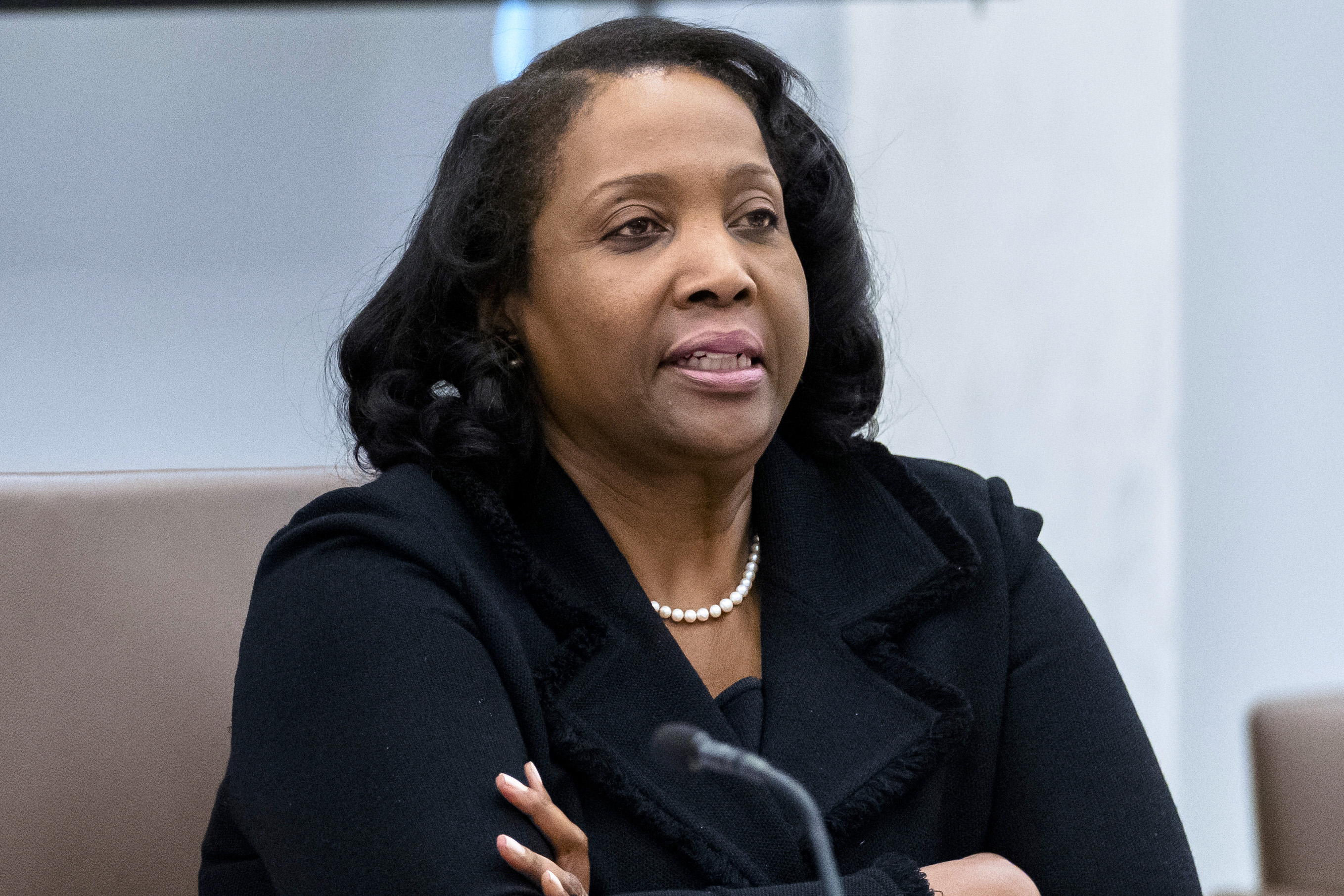Supreme Court to Hear Trump’s Case to Dismiss Fed Governor Lisa Cook on January 21
Supreme Court to Hear Trump’s Case to Dismiss Fed Governor Lisa Cook on January 21
By
Rachel Steinberg
Last updated:
November 13, 2025
First Published:
November 30, 2025

Photo: The Epoch Times
Supreme Court to Rule on Trump’s Power to Remove Fed Governor
The U.S. Supreme Court will hear oral arguments on January 21 in a high-profile case that could reshape the balance of power between the White House and the Federal Reserve. The case centers on whether President Donald Trump has the legal authority to fire Federal Reserve Governor Lisa Cook, marking a rare constitutional dispute involving the independence of the central bank.
The move comes after Trump announced on August 25 that he intended to remove Cook, who in 2022 became the first Black woman appointed to the Federal Reserve’s Board of Governors. The president cited allegations of mortgage fraud involving two properties Cook allegedly owned prior to her appointment — claims she strongly denies.
Cook filed a lawsuit in September challenging her dismissal, arguing that the president’s attempt to remove her violated the Federal Reserve Act, which allows removal of a governor only “for cause” related to behavior while in office.
Lower Courts Blocked Trump’s Attempt
In early September, U.S. District Court Judge Jia Cobb issued an injunction preventing Cook’s removal while her lawsuit is pending. The U.S. Court of Appeals for the D.C. Circuit later upheld that decision, prompting the administration to take the matter to the nation’s highest court.
Judge Cobb’s ruling emphasized that the Federal Reserve Act’s “for cause” provision limits presidential authority. “The best reading of the law,” Cobb wrote, “is that removal for cause must relate to behavior in office, not pre-appointment conduct.”
The allegations against Cook stem from real estate transactions that occurred years before she joined the Fed, and no formal charges have been filed. Her attorneys have called the allegations “politically motivated” and intended to undermine the Fed’s independence.
The Administration’s Argument
Solicitor General D. John Sauer, representing the Trump administration, argued in filings that the president possesses broad authority to remove appointed officials. Sauer maintained that Cook “does not have a Fifth Amendment property interest in her continued service as a Governor of the Federal Reserve System.”
He further stated that as long as a president provides some justification related to an official’s “conduct, ability, or fitness,” the decision to remove them falls under executive discretion and is not subject to judicial review.
The administration contends that the “for cause” provision should not shield Fed governors from accountability or presidential oversight — a stance that, if upheld, could grant the White House greater influence over the Federal Reserve’s policymaking body.
A Historic and Politically Charged Dispute
The case has sparked nationwide debate about the independence of the Federal Reserve, which has traditionally operated outside of political control to ensure stable monetary policy. Legal scholars note that this is the first time in U.S. history a sitting president has attempted to remove a Federal Reserve governor.
The timing also heightens tensions between Trump and Fed Chair Jerome Powell, whom the president has repeatedly criticized for not lowering interest rates quickly enough. Analysts suggest the case could have far-reaching implications for how future presidents interact with the central bank.
If the court sides with Trump, it could set a precedent allowing presidents to remove Fed governors for reasons beyond their official conduct — potentially reshaping the Fed’s autonomy and influencing financial markets and investor confidence.
Broader Economic Implications
The dispute comes at a time when the Federal Reserve continues to manage inflation, interest rates, and overall market stability. Investors and economists are closely watching the case, with some warning that a ruling favoring expanded presidential power could inject political risk into monetary policy.
Cook’s position on the Board of Governors — one of seven total seats — gives her a crucial role in shaping decisions on interest rates, inflation control, and banking regulation. The outcome of this case could influence how independent the Fed remains in handling key economic challenges, including persistent inflation pressures and labor market shifts.
What’s Next
The Supreme Court’s decision, expected by mid-2025, could define the limits of presidential authority over independent financial institutions for decades to come. If the justices rule in Trump’s favor, it would expand executive power and potentially alter the structure of the Federal Reserve System, established in 1913 to operate free from direct political intervention.
For now, Lisa Cook remains in her position as the case moves forward. The ruling could not only determine her future but also set a historic precedent for the separation of powers between the executive branch and America’s most influential economic institution.
Popular articles
Subscribe to unlock premium content
London’s Gourmet Playgrounds

From Bean to Buzz in Thailand

The Secret Life of Pop-Up Luxury Restaurants in Paris

London’s Gourmet Playgrounds

From Bean to Buzz in Thailand

London’s Gourmet Playgrounds









